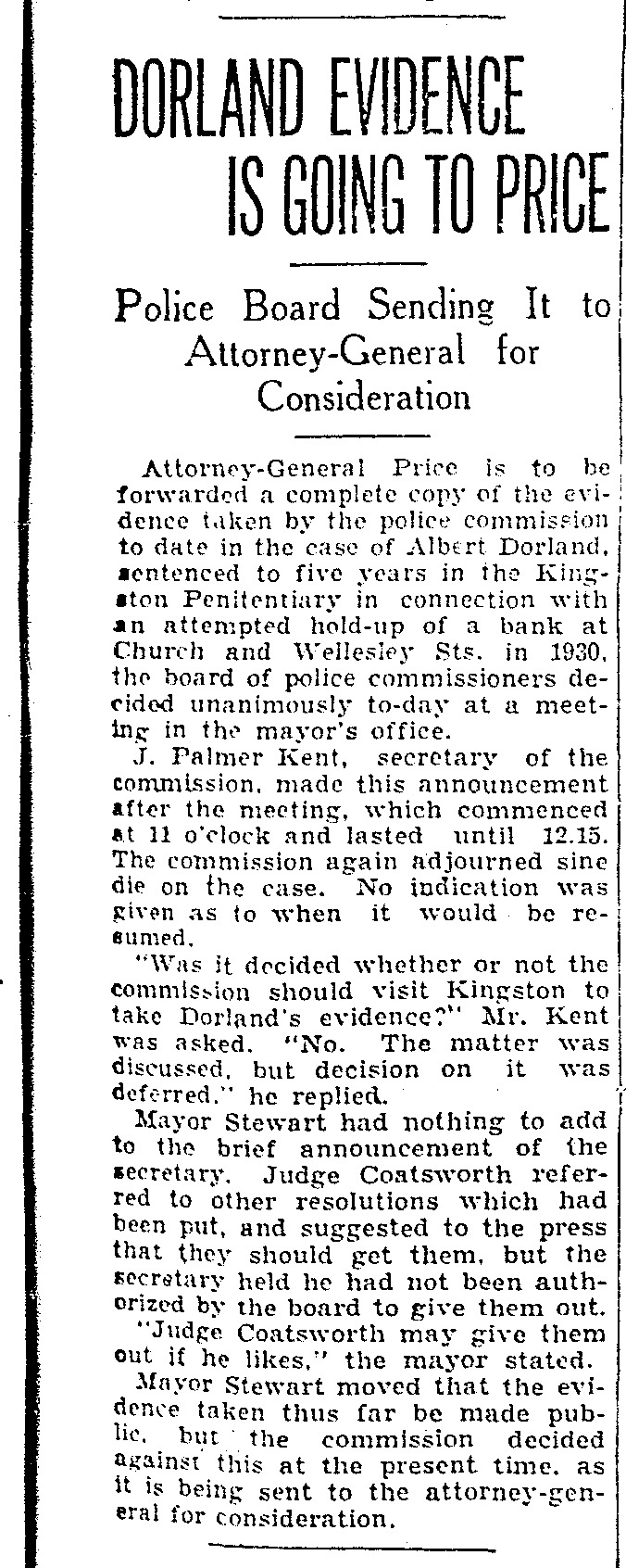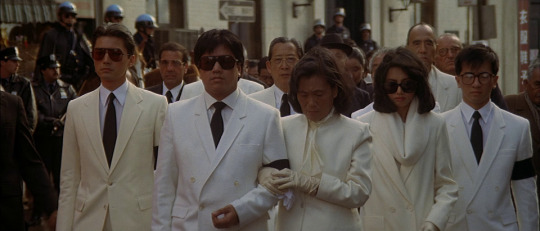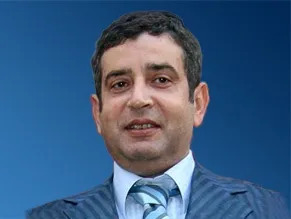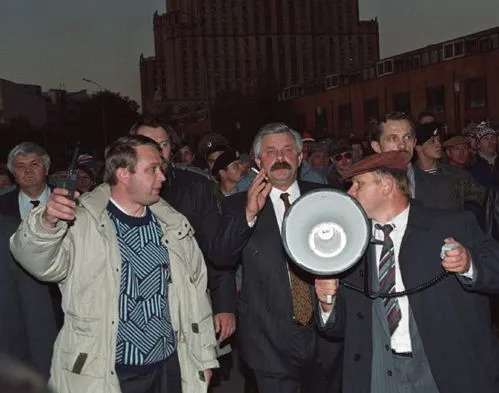#toronto police corruption
Text
On Monday, witness Amul Kumar described uncovering a pair of thefts while searching his dead younger brother’s belongings. Borissov had been assigned to investigate the brother’s disappearance, which was later discovered to be his death by suicide.
#boris borissov#toronto#tps#toronto police services#cdn politics#cuban cigars#cdn news#toronto police corruption#police corruption
2 notes
·
View notes
Link
Too stoned to traffic
#Canada#police#RCMP#dysfuncionality#incompetence#corruption#drugs#Hell's Angels#Toronto#Nova Scotia#malicious prosecution
0 notes
Text

“Dorland Evidence Is Going to Price,” Toronto Star. December 23, 1932. Page 1.
----
Police Board Sending It to Attorney-General for Consideration
----
Attorney-General Price is to be forwarded a complete copy of the evidence taken by the police commission to date in the case of Albert Dorland, sentenced to five years in the Kingston Penitentiary in connection with an attempted hold-up of a bank at Church and Wellesley Sts. In 1930, the board of police commissioners decided unanimously to-day at a meeting in the mayor’s office.
J. Palmer Kent, secretary of the commission, made this announcement after the meeting, which commenced at 11 o’clock and lasted until 12.15. The commission again adjourned sine die on the case. No indication was given as to when it would be resumed.
‘Was it decided whether or not the commission should visit Kingston to take Dorland’s evidence?’ Mr. Kent was asked. ‘No. The matter was discussed, but decision on it was deferred,’ he replied.
Mayor Stewart had nothing to add to the brief announcement of the secretary. Judge Coatsworth referred to other resolutions which had been put, and suggested to the press that they should get the,, but the secretary held he had not been authorized by the board to give them out.
‘Judge Coatsworth may give them out if he likes,’ the mayor stated.
Mayor Stewart moved that the evidence taken thus far be made public, but the commission decided against this at the present time, as it is being sent to the attorney-general for consideration.
#toronto#toronto police#police corruption#police violence#armed robbery#armed robbers#bank robbery#bank robbers#attempted armed robbery#police informant#kingston penitentiary#sentenced to the penitentiary#dorland case#great depression in canada#history of crime and punishment in canada#crime and punishment in canada
1 note
·
View note
Text
One of the Ontario Provincial Police (OPP) officers accused of taking a bribe in exchange for sending business to a Toronto-area towing company(opens in a new tab) has been acquitted.
Following a four-day trial in November, Hon. Justice Loww acquitted Const. Simon Bridle for allegations of breach of trust in relation to tow truck corruption.
Bridle was alleged to have favoured one specific tow operator to remove vehicles from drivers charged with stunt driving and to have received the benefit of a 2016 Chevrolet Silverado from Steve Pillay, the tow company owner, who was paying the lease payments.
Continue Reading
Tagging @politicsofcanada
#cdnpoli#canada#canadian politics#canadian news#police#ontario#ontario provincial police#corruption#bribery
59 notes
·
View notes
Text
If you wanted to know more about the saga of protests and resistance against Canada’s open-pit copper mining in Panama:
---

Screenshot and headline from: “Canadian firm blames Panama for closure of copper mine.” AP News. 16 December 2022.
---

Headline from: “Panama: Canadian mining company First Quantum denied to expand copper exploitation area for alleged failure with environmental commitments.” Business & Human Rights Resource Centre. 26 January 2023.
---

Headline from: Valentine Hilaire. “Panama won’t allow Canada’s First Quantum to expand its copper mine operations.” Reuters. 26 January 2023.
---

Headline by: The Associated Press. “Panama reaches 20-year deal with Canadian copper mine.” As republished at ABC News. 8 March 2023.
---
An excerpt and explanation:

In Panama, a dispute has emerged of a type that is common to countries in Central and South America: a huge transnational company has invested in the country’s resource wealth, resulting in a conflict over suitable payments to the government that draws in officials from the company’s nation of origin in defence of corporate profits. In this case, the company in question is First Quantum Minerals, a mining giant with lucrative investments across the Global South -- and the country of origin is Canada.
This summer [2022], Panamanians rose up in nationwide protests against the neoliberal status quo imposed on the country by the government of Laurentino Cortizo. Beginning on July 1, these protests brought together diverse groups including teachers, students, trade unionists, farmers, and Indigenous organizations [...]. The causes of the summer 2022 protests go back decades and help illustrate the dynamics of the current conflict between First Quantum (and their backers in Ottawa) and the Panamanian state.
Throughout the 1990s, Canada aggressively pushed for states in Central and South America to adopt neoliberal reforms that would permit more foreign investment and fewer regulations for transnational companies. [...]
Several protest movements emerged in Panama in the 2010s in opposition to the effects of free market reforms generally and the predominance of Canadian mining specifically. At the heart of these resistance movements is the Canadian-owned Cobre Panamá mine, which is the largest foreign investment in the country [...].
---
Cobre Panamá was owned by the Toronto-headquartered Inmet Mining until 2013, at which point it was acquired by Vancouver-based First Quantum. In 2011, the Martinelli government attempted to limit the Indigenous Ngäbe-Buglé nation’s rights to autonomy and self-government in order to grant mining companies access to minerals on their land. Meanwhile, Martinelli repealed a law that prevented foreign governments from investing in the mining sector -- a gift to Canada’s Inmet Mining, which at the time was seeking financing from the sovereign wealth funds of Singapore and South Korea.
These moves sparked protests that continued into 2012. Martinelli responded to demands for the annulment of mining and hydroelectric concessions on Indigenous territory with violence by dispatching riot police. The police killed one protestor, injured thirty-two, and detained forty. The protestors did not budge; instead, they blocked the entrances to Cobre Panamá and another mine owned by the Canada’s Petaquilla Minerals. Eventually Martinelli relented and vowed not to approve mining projects on or near Ngäbe-Buglé lands.’
---
During the 2011-2012 conflict, nobody in the Canadian government issued a single statement on the matter. When protestors took to the streets again in 2022, Ottawa released a statement that totally omitted the reasons behind the uprising.
Following the economic shock of the COVID-19 pandemic, the Cortizo government declared that Panama’s recovery would rely on incentivizing foreign investment in the mining sector. Social movements have by and large rejected this new arrangement due to the history of corrupt collaboration between state officials and foreign companies and the weakness of environmental protections.
---
For example, in April 2022 the Panama Worth More Without Mining Movement -- which arose in opposition to the Canadian-owned Cobre Panamá mine -- released a report that found over 200 “serious” breaches of environmental commitments by the project managers, including the breaking of reforestation promises, “the felling of 876 hectares… in an area of high biodiversity and international importance,” and “the discharge of waste from the tailings tank into natural bodies of water without official endorsement.”
Following the summer 2022 protests, the Cortizo government announced plans to reform the mining sector by instituting greater regulations on foreign companies. In the meantime, the Panamanian state and First Quantum were in the process of negotiating a renewed contract. Jason Simpson, CEO of Canada’s Orla Mining (which is hoping to begin extraction at its Cerro Quema gold project), said, “The biggest story in Panama is Cobre Panamá, so as the government works through their renewed contract law for First Quantum’s asset there, that’ll take priority… We’ll be patient for that to be resolved and then we hope to get working on construction in Panama.”
The negotiations for the renewal of the Cobre Panamá contract began in September 2021. The two parties agreed that First Quantum would provide Panama with between 12 and 16 percent of its gross profit, a new rate that would replace the previous two percent revenue royalty. [...]
---
Much like Ottawa jumped to the defence of Centerra Gold following Kyrgyzstan’s nationalization of the Kumtor gold mine last year, the Trudeau government has taken a keen interest in Cobre Panamá and, according to the unnamed Reuters source, is actively backing the mining company’s position. Given Canada’s long history of support for neoliberal reforms and transnational investment in Central and South America, Ottawa’s support for First Quantum in these negotiations should come as no surprise.
---
Headline and text by: Owen Schalk. “Ottawa backs Canadian mining giant in dispute with Panama.” Canadian Dimension. 26 December 2022. [Bold emphasis and some paragraph contractions added by me.]
171 notes
·
View notes
Text
I started watching a new CW show on a whim, and I am pleasantly surprised - Wild Cards. It has a lot of fun tropes used well between the two main characters Max and Ellis and it takes place in Canada - I would say which city, except I don't know skylines that well, but it has a water front, and I'm just going to say Vancouver or Toronto because those cities seem like the US's versions of NYC and LA - any and all shows take place in or around them.
Anyway. Ellis is the Grumpy and Tall and Max is the Happy and Smol of the duo - Ellis is a disgraced police officer who got bumped from detective to marine patrol, and Max is a con artist and thief. It's very much reminding me of White Collar, and they wind up having to work together because she helps him out solving a high profile crime. Because of their success, brass makes them an offer - if they can work together, they'll reinstate Ellis as a detective, and Max stays out of prison.
Admittedly, we are 1 episode in, but I CARE NOT. Things that I love in no particular order:
Max is not a male written character with a female cast in the role. She is fun and bubbly and charming and sweet and relies heavily on the fact that all of these things help distract marks, and lets her get out of a lot of trouble. Because she's so friendly and nice, she gets people almost immediately at ease - even people she's been known to scam like her. The people who arrest her like her. The cops in the bullpen like her. Even Ellis, who doesn't seem to like anyone at all, begrudgingly respects her.
Ellis is grumpy, and for a good reason. Actually, a couple good reasons. But instead of him being the only honest cop in a group of corrupt ones, he's the one suspected to be a dirty cop from an undercover gig, which went badly, and why he got busted down to marine patrol.
Zero Daddy issues for Max. Again, I admit, it's been one episode, BUT she visits him twice in prison (he's also criminally inclined) and he is more than happy to help her out, and that includes finding out Ellis's background to make sure she's not in more trouble than she thinks she is. Prison sentence aside, it seems like a solid Father/Daughter relationship (though it does make me think of the skit "I would be proud of my daughter no matter what. She could be a serial killer - "nine victims in total" - "excuse me? Nine that you know of").
Even though Ellis is cranky, he covers for Max even though it gets him in trouble instead of her in front of his superiors and his co-workers. He also just rolls with whatever bizarre scenario she's come up with for their cover - "I'm a Russian princess, and you're my pretty but clueless boy toy/goat yoga instructor" and the most he'll do is make a face, and then commit to the part.
Even though I am 100% positive this is going to be a romance between Ellis and Max, they're starting off with Mutual Respect for one another as people rather than just finding each other hot. I think Max looks at Ellis like "this is my poor little meow meow doom cloud " and Ellis is like "this is my emotional support extrovert." [two of my other favorite tropes]
They use a lot of tropes well - Ray of Sunshine and Grumpy Cat partners, Criminal and Cop as Partners, Criminal with Heart of Gold, Hidden Emotional Injury, Opposites Attract, etc.
Anyway - police procedural mixed with White Collar vibes. So far, recommend.
18 notes
·
View notes
Text
Canada intends to buy missile used in killing World Central Kitchen aid workers:
The Canadian military says it has no plans to review its decision to purchase $43 million worth of a type of Israeli-made missile despite the munition’s apparent use in killing seven aid workers
Canada can climb down from its moral high ground 🙄 Unsurprisingly, DND's Bill Blair as police chief was not only corrupt and sold to the Zionist cause by shielding securities fraud (boiler room network of Sy Jacobson) used to pay for illegal settlements, but he also had a blatant disregard for human rights as evidenced at the Toronto G20.
#palestine#palestinians#israeli apartheid#israeli occupation#gaza#genocide#childrens holocaust#free palestine#free gaza#world central kitchen#war crimes#famine#humanitarian crisis#mass murder#arms embargo#arms sales#idf terrorists#iof terrorism#illegal settlements#germany#nicaragua#icj#justice#wck#canada#justin trudeau#bill blair#the maple#dnd#caf
10 notes
·
View notes
Text
By: Allan Stratton
Published: Jul 23, 2023
Toronto is one of the most tolerant, multicultural cities in the world. And yet, according to many of its progressive journalists, academics, and politicians, it’s actually a den of systemic racism, sexism, homophobia and transphobia. Unless you’re a straight white man, daily life is supposedly an exhausting and dangerous struggle. If you live in the United States, the UK, Australia, or elsewhere in Canada, I’m guessing you’ve been told similar things about your own society.
I’m a gay man for whom these reports bear no relationship to the real world. Certainly, hate-crime statistics show a sharp increase in physical and verbal abuse against specific demographics, including my own. And there are even rare incidents of murder and arson. But to suggest that minorities live under constant threat from a bigoted majority is apocalyptic nonsense. This is especially true of Canada, an especially open, diverse, and welcoming country. Western nations, more generally, are incontrovertibly the most tolerant on the planet.
My heretical view (among fellow progressives, at least) may be due to my “positionality” (this being a faddishly woke jargon term that most English speakers would call “perspective”). The Holocaust and the internment of Japanese North Americans ended a mere six years before I was born. The pass system that turned Canadian Indigenous reservations into open-air prison camps was still in force. The United States was segregated by Jim Crow and redlining. Cross burnings and lynchings went unpunished. Marital rape was legal. Spousal abuse and unequal pay were commonplace. Gay sex and cross-dressing were criminalized, with outed individuals losing their jobs and children. “Fag bashing” was treated as public entertainment.
In the relatively few decades since, western governments have implemented universal civil and human rights protections for racial and sexual minorities. The speed and depth of this transformation has been so remarkable that it seems inconceivable that we ever lived as we once did. Has any other culture critiqued its failings and set about reforming itself so quickly?
This is not to suggest that everything is sunshine and lollipops. Human nature has not been repealed. Police departments without effective civilian oversight, for instance, continue to invite corruption and abuse. Nonetheless, we now have the tools to press for accountability, such as human rights tribunals and whistleblower protections.
It’s also important to acknowledge that while the relative increase in reported hate crimes may seem shocking, that rise is based on a remarkably low baseline. For instance, 2021 saw a 65 per cent increase in incidents (over 50 per cent of these comprising verbal slurs) targeting Canada’s LGB and T communities. But that still represents just 423 cases in a country of 40-million people. That’s hardly a “tsunami of hate.” The number is infinitesimal compared to the 114,132 domestic assaults and 34,242 sexual assaults recorded against women.
One often hears that a reversion to the backward ways of the past is just around the corner. And it is true that abortion rights now hang in the balance in many conservative U.S. states. But the idea that any Western country (especially Canada) is on the cusp of a wholesale rejection of liberal principles is absurd. Women will never again need their husband’s signature to open a bank account. Racial segregation is unthinkable (except, ironically, in certain progressive institutions). Marriage equality for same-sex couples is constitutionally protected in North America, and enjoys a historic 70 per cent level of support in the United States.
So, unlike those on the left who came of age in the 90s and the decades that followed, I don’t see an intolerant society destroying civil rights and minority safety. Rather, what I am now witnessing is a period of progressive overreach, led by ideologues with no (apparent) historical memory or understanding of how our liberal social contract evolved. They have turned language inside out so as to render words such as “woman,” “safety,” and “genocide” essentially meaningless; pursued policies that lock one-time progressive allies in a zero-sum culture-war conflict; recast free speech as hate speech; confused wishes (and, in some cases, fantasies) with rights; and punished dissenters from their Borg-think with social exclusion, “re-education,” and firing.
This radical attempt to unilaterally impose a new social order based on race and gender essentialism has ignited a widespread public backlash, which has been weaponized by the far right, destroyed public goodwill, and done more damage to the progressive cause than anything its reactionary enemies have done in recent years.
-
The civil-rights movements of the last century won victories by liberal means based on liberal values. This included an insistence on free speech and civil liberties; and an appeal to the universal values of dignity and equality, which in turn underpin the case for protecting individual human rights and freedoms.
In part, this was because we liberals understood math. We needed white, straight, male legislators to support our causes, a project that could only be engaged through free and open debate. Empathy-based co-operation enabled us to create bridges among our diverse groups: The Gay Liberation Front raised money for the Black Panthers. In turn, its leader, Huey Newton, supported the gay liberation and women’s liberation movements. Meanwhile, Jewish groups applied their historical understanding of discrimination to help lead the fights for women’s rights (Betty Friedan), gay rights (Larry Kramer), and black voting rights, with some even giving their lives as Freedom Riders
By contrast, today’s illiberal left explicitly rejects the principles of free speech and universality. It ignores the lessons of past civil-rights successes, often denying that such successes even took place. After all, how can one insist on the dismantling (or “decolonization”) of a system that has shown itself capable of self-correction and continuous improvement? The only framework that validates the progressive narrative of ongoing oppression and white supremacy is one that ahistorically presents mainstream liberal values as a failure.
The switch in social-justice circles from liberal to authoritarian ends and means has at least three major causes. The first is structural: As (originally) liberal rights groups such as the ACLU achieved their objectives, they were required to rewrite their mission statements and pretend away their past successes — this being the only way to justify their ongoing existence.
Far from seeking to “burn it all down,” most of us within the original LGB and T movements simply wanted equality within existing social structures. We used liberal “respectability politics” to make our case, and (for the most part) folded our tents when we achieved our goal. The unwitting effect of this was to leave our old organizations to the radicals, who had long condemned us as sellouts to the patriarchy. Their goal is nothing less than the remaking — or “queering” — of society, a vaguely defined project infused with a deep suspicion of, or even hostility to, capitalism and the nuclear family. The liberal LGB and T wish to live and let live is now the authoritarian “live as we live.”
The second factor is generational change. Just as children separate from their parents in their passage to adulthood, so does each generation define itself in contradistinction to its immediate predecessor. Without personal memory of past struggles, present conditions are taken for granted. And so the battle against current injustices (real or otherwise) is seen as humanity’s defining and timeless struggle.
My generation mocked our parents’ conformity and stoic, suck-it-up ethos, forgetting that these traits had been necessary social adaptations during the Great Depression and World War II. Similarly, activists of this generation attack our commitment to free speech and integration within society, forgetting that these strategies were necessary for us to be heard during the Cold War, when outsiders were suspected as potential fifth columnists.
But perhaps the most significant factor has been the academic trend toward postmodernism, which instructs adherents that neither objective reality nor human nature exist in any certain, provable way. Reason, logic, and objective facts are rejected — or at least put in scare quotes — as are appeals to history and science. These are all held to be mere artifacts of language, which is itself presented as a reflection of existing power structures. And since these structures are presumed to systematically oppress the powerless, they must be deconstructed, dismantled, and decolonized, root and branch.
This kind of thinking isn’t just claptrap that flies in the face of day-to-day human experience. It also encourages a kind of intellectual nihilism that precludes amelioration of the injustices and power imbalances that supposedly concern many postmodern thinkers: After all, what could possibly replace our current power-based intellectual constructs except new power-based intellectual constructs?
Nonetheless, postmodern habits of mind (often flying under the banner of “critical” studies of one kind or another) have infected academic humanities and social science departments all over the west, much like the fungal parasite on The Last of Us. Its professorial hosts now work to dismantle their own institutions, attacking the “colonial” concepts of science and empiricism in favour of undefined and unfalsifiable “ways of knowing.” Meanwhile, their students have incubated its spores and spread them into the wider society, including corporate human-rights offices.
Progressives (rightly) have denounced Donald Trump and his supporters for their paranoid belief that the 2020 U.S. election was “stolen.” But these right-wing conspiracy theorists are not so different from campus leftists when it comes to their à la carte approach to accepting or rejecting reality according to passing ideological convenience
In particular, the idea that pronouns serve as magic spells that can turn a man into a (literal) women is no less ridiculous than anything Trump has ever said. The same goes for the mantra that while girls who cut themselves need therapy, girls seeking a double mastectomy require “affirmation.” Likewise: Racial segregation is a bigoted practice … except when it represents the very acme of progressive enlightenment. “Defund the police” doesn’t mean abolish the police, except when it means exactly that.
And then there’s Schrödinger’s Antifa, which presents these street thugs either as a very real force that rose up as a morally laudable reaction to fascism … or as something that exists only in Tucker Carlson’s fever dreams, depending on context.
But postmodernism and critical theory have done more than just damage our societies’ intellectual cohesion. Their denial of universal human nature eliminates empathy as a tool to bridge differences among groups, which are instead presented as warring sects prosecuting unbridgeable race (or gender) feuds. Since power is presented as the singular currency of the realm, the ability to shut the other side up is valued more than the ability to persuade it.
Gay men such as Andrew Sullivan and Andrew Doyle have been among the most prominent dissenters against wokeism — in part because we instinctively recognize the destructive nature of this power-fixated mindset. Our experience suggests that empathy and reason are far more important than threats and cultural power plays.
Dave Chappelle has said that the LGBT movement won public support more quickly than its black counterpart because of racism. But I believe the truth is different: Unlike racial and ethnic minorities, we exist in every demographic, every family, every ethnic category. When we gay men came out en masse during the 1980s AIDS pandemic, all communities realized that we were among its children, parents, and siblings. People have a harder time discriminating against their own than against outsiders.
Traditionally, the left has appealed to a sense of camaraderie and shared purpose. The resulting project of alliance-building has entailed negotiation among different groups, all of which may have different priorities and perspectives. But that alliance-building project becomes impossible when one sect or another demands that disagreement be treated as a form of thoughtcrime. Deplatforming doesn’t just hurt the target; it also hurts the movement, since the summary excommunication of dissidents means that adherents never need to acknowledge or address counterarguments, internal logical inconsistencies, or the off-putting nature of their message.
Indeed, ideologues such as Nikole Hannah-Jones claim that politics has a colour: Blacks who aren’t “politically black” are traitors who collaborate with “whiteness.” As seen through this lens, Asian-Americans who fight anti-Asian discrimination in the context of affirmative action are supposedly puppets of white supremacists, and the LGB Alliance, by standing up for same-sex attraction, is smeared as a transphobic hate group. (For asserting that biology is real, Stonewall UK even tried to destroy the career of one of the LGB Alliance’s founders, Allison Bailey, a lifelong social justice advocate who happens to be a black, working-class lesbian, and the child of immigrant parents. Thankfully, Stonewall did not prevail.)
Opponents of cancel culture often focus on its negative effects on conservatives. But it’s often woke organizations that end up imploding under its strains, typically due to internal battles over victimhood status and linguistic control. In recent years, many of these groups have been driven off the rails by single-issue gender activists who are willing to support misogyny and homophobia in the name of trans rights; or BLM activists willing to permit racism directed at “model minorities.” Even antisemites have been allowed to infiltrate left-wing political parties, the arts establishment, and anti-racist education initiatives. No wonder everyone involved with this movement is always complaining about how emotionally “exhausted” they are: They’re surrounded by toxic fellow travellers who gaslight them as right-stooges if they dare raise a complaint.
Another notable feature of militant social-justice movements is the sheer joylessness of their leaders and supporters, a condition that often seems to blur into a collectively embraced state of clinical depression and paranoia. This posture flows from their presupposition that they suffer endlessly due to the malignant primordial character of “whiteness” and heteronormativity (or, yet worse, cisheteronormativity). The language of individual agency and hope, which animates liberalism, is replaced with a soul-dead idiom by which the activist presents as a self-pitying victim of oppression, constantly at risk of suicidal ideation, erasure, and genocide.
Even privileged “allies” are encouraged to dwell on their whiteness, straightness, cisness, “settler” status, and other marks of intersectional Cain. By erasing the possibility of redemption, the movement alienates liberal allies who are seeking to build bridges with others en route to living successful and fulfilling lives in a way that escapes the politics of identity. The social-justice puritan, being primarily concerned with advancing his status within a cultish inward-seeking subculture that’s constantly inventing new grievances, on the other hand, finds such a goal unthinkable.
The use of words such as “harm” and “violence” to describe the microaggressions known to the rest of us as “daily life” is a particularly unattractive feature of social-justice culture. In the 1980s, gays and lesbians responded to daily discrimination with the chant, “We’re here, we’re queer, get used to it.” Today, the children and grandchildren of that generation, now enjoying full civil rights and perches within elites sectors of government, culture, and high society, instead tell us, “We’re here, we’re queer, and … we’re terrified to step outside.” As a gay man, it’s humiliating to hear this kind of maudlin rhetoric uttered in my name.
The broad public, long sympathetic and accommodating, has had it. People have no time for hysterical activists who whine, bully, and hector them about things they didn’t do and over which they have no control. This is particularly true when those same activists demand the elimination of women’s sex-based rights, the medical sterilization of children and teens, and the explicit exclusion of job applicants by race. The more that ordinary men and women came to learn about gay marriage, the more they accepted it. By contrast, the more that ordinary men and women come to learn about trans-activist demands and critical race theory, the more they’ve become repulsed.
Support for Black Lives Matter collapsed when the woke trivialized the arson and looting that accompanied the George Floyd protests. The public was completely onside with the left’s demand for police reform, but horrified by the extremist push to dismantle public security, and enraged that the left justified breaking pandemic restrictions for protests while insisting that grieving families be kept from their dying relatives in hospitals.
Likewise, Lia Thomas tanked support on gender radicalism. The public had long welcomed trans civil rights, sympathized with those suffering dysphoria, and accepted that even non-dysphoric trans-identified individuals should be able to live and present as they wished. But the sight of a strapping, butch male taking women’s prizes and opportunities was a breaststroke too far.
Facing resistance, the woke doubled down, insisting on automatic gender affirmation for everyone, including rapists and children. The result gifted social conservatives an issue of concern to majorities across the political spectrum. Now, progressives in the U.S. face a raft of bills that, among other things, resurrect false charges of Alphabet paedophilia. No wonder LGB groups are jettisoning the T: In the space of just a few years, trans activists have undone the good work that gay activists did over multiple generations.
The progressive movement must stand up to its extremists. We must restore the liberal social compact that won our civil and human rights. That means we should root our claims in areas of common ground, demanding fair treatment, but not the right to dictate what others think.
The most intense theatres of culture-war combat involve the education of children, an area in which liberal attitudes must be allowed to hold sway. Popular free speech principles should be applied to school libraries and curricula — which means opposing campaigns to root out books demonized by both the left and the right alike. In classrooms, an open exploration of history can provide a context for kids to discuss how injustices were overcome in the past and how they might be handled in the present. Students can be taught to brainstorm how to use their advantages to help the less fortunate, and how others in their situation have dealt with adversity. But they should never be taught that personal relationships and moral hierarchies are determined by the colour of one’s skin.
Likewise, boys and girls should be allowed to play and dress free of gender stereotypes, with a no-bullying policy strictly enforced. They should learn who they are by themselves, and be taught that they are more than the sum of their parts. They should not be labelled by ideological adults consumed by a mania for gender theory. In school, I skipped with the girls, had a lisp, and liked to play with china elves. That didn’t make me a girl, just as dressing butch and dreading the effects of a puberty doesn’t turn a lesbian into a boy. (I shudder to think what might have happened were I a child today.)
We should also return to the left’s traditional focus on class. Diversty, equity, and inclusion initiatives enrich the small group of well-educated profiteers who proselytize the DEI faith, but they’re actually worse than useless when it comes to workplaces, exacerbating intolerance among the hapless workers forced to submit to tedious seminars and questionnaires. Resources from the DEI industry’s rapidly metastasizing bureaucracies should be redirected to programs that materially help the poor: Unlike affirmative action programs, investments in deprived neighbourhoods disproportionately assist minorities without the creation of double-standards and racial left-behinds that serve to energize white nationalists. They also support social mobility and economic inclusion.
“I just want to say—you know—can we, can we all get along?” is how Rodney King put it in 1991. While many of us might read the underlying sentiment as self-evident, the militant social-justice left now treats it as a forbidden lie, since the entire movement is based on the conceit that peaceful and harmonious coexistence is impossible within a pluralistic liberal society that doesn’t forcibly “queer” itself, endlessly hector citizens about their bigotry, and segregate workers and students by skin colour.
I believe we can all get along. As a progressive, a gay man, a Canadian, and a liberal, I want no part of any movement — whatever it calls itself — that insists we can’t.
[ Mirror: https://archive.is/es3Q4 ]
==
To the extent that liberal principles are actually being rejected, it's coming from both the authoritarian reactionary right, and the authoritarian postmodern left.
#Allan Stratton#liberal ethics#liberal values#liberalism#illiberalism#antiliberalism#anti liberal#critical social justice#social justice#wokeism#cult of woke#wokeness as religion#woke#toxic wokeness#religion is a mental illness
23 notes
·
View notes
Text
Movie Review | Year of the Dragon (Cimino, 1985)

This review contains spoilers.
There’s a difference between a movie being racist and a character being racist, and I think a scene here between Mickey Rourke and Ariane that illustrates the distinction. Rourke tells Ariane he’s been reading up on the history of Chinese people in America, and shows an awareness of the discriminatory laws they were subject to. He refers to a picture celebrating the completion of a railroad, noting the demographic groups who were present, and points out that the Chinese labourers who did the actual backbreaking work of building them were not in the photo. One might think he’s developed an understanding of their marginalization, but his next line reveals the opposite, as he speculates that it was due to their secretive nature. Rourke’s character, a highly decorated police captain who takes over the precinct in New York’s Chinatown, spews an endless stream of bigotry as he wages his war on the local triads, yet scenes like that illustrate his limited understanding. His Vietnam service is a critical detail, showing that he conflates the Chinese with the Vietnamese as he tries to essentially re-fight the war on his own terms, disgusted by the defeatist, corrupt cops that populate his precinct and try to constrain him.
And while Rourke is our protagonist and much of the film is filtered through his perspective, the movie devotes a sizable amount of screentime to upstart gangster John Lone, who plays the movie in silky smooth drip king mode. And while Lone’s charisma is undeniable, it isn’t eager to either glibly worship him or play up his villainy, but instead drops us into his world, showing his role in the community (offering his help to people whose options are limited in mainstream society), with his peers (maneuvering to oust an elder, more risk-averse triad leader) and running his criminal enterprise (a trip to Thailand to give us supply contacts a bloody surprise). These are not positive images of Chinese Americans, but like William Friedkin’s Cruising, which attracted similar controversy for making a cynical thriller about the gay leather bar scene when LGBTQ representation in Hollywood movies was extremely limited, there’s too much detail and genuine fascination in the portrayal for it to be dismissed as bigotry. Was any other Hollywood movie of this time and with this level of budget even acknowledging that there are multiple Chinese languages (going so far as to reference the Hakka dialect)? I am not of the group being depicted and as a result may not share the same sensitivities, but I can’t agree with the claims that this movie is racist. (It’s worth noting that Victor Wong and Dennis Dun, who have important parts in this, also starred in the following year’s Big Trouble in Little China, another movie about a clueless white guy in Chinatown, although that movie is more overtly satirical in this respect. I also should note that as a Torontonian, I chuckled whenever the villains mentioned the rival triad from Toronto.)
This is also a moody, forcefully directed crime thriller, powered by a electric performance by Rourke, who hurtles through the movie like a natural disaster, leaving everything and everyone he comes across in ruins. (If there’s one issue with Rourke’s role, it’s the weird dye they put on his hair to make him look like a grizzled veteran. Rourke was at the peak of his sex appeal at this point, so the bad dye job clashes extra hard with his good looks.) I just got finished defending the movie for distinguishing its perspective from its hero’s, yet there’s no denying that Rourke’s immense magnetism pulls us into his orbit, and in its most thrilling sequences locks onto his feverish intensity. Look at the scene where a pair of assassins kills his wife, and he takes frantically takes them out, the second one being dispatched with a gruesome headshot and subsequent explosion. Or the scene where he accosts Lone in a garishly lit nightclub, barging into multiple bathroom stalls where people are doing cocaine (an unexpectedly comedic touch), and then chases after two gunwomen with new wave hairdos, recklessly exchanging gunfire through traffic. Or the showdown with its mixture of car chase and gunplay on train tracks. The movie may be messy (there’s a subplot about an undercover agent that seems forgotten about for much of the runtime, although it too gets a bloody, forceful denouement), but as a fan of Michael Cimino’s Heaven’s Gate, I don’t think neatness is always and asset, and scenes like these are bracingly visceral in their impact.
I do think the movie suffers in its portrayal of its female characters, with Rourke’s wife and Ariane coming off less like fully formed people than as plot devices and extensions of Rourke’s psyche. The idea of the long suffering wife seems more important than who the wife really is. And the idea of Ariane, with her cultural identity and her fancy apartment with a view to die for (which Rourke transforms into a police clubhouse of sorts in one of the movie’s funnier scenes) seems more important than how she really thinks and feels. I understand Ariane’s performance was frequently cited as one of the movie’s weaknesses, but I think the writing lets her down more than actual deficiencies in her acting, and the last line of the movie concludes their relationship on a completely wrong note. (I understand that Cimino was forced to put this in at the studio’s request after they didn’t like the original closing line: “Well, I guess if you fight a war long enough, you end up marrying the enemy.” In my opinion, the original line would have been clumsy but still greatly preferable to what we get in the finished film.) But I suppose the fact that these characters don’t feel like three dimensional characters is true to how Rourke sees them, being so caught up in his crusade that it’s withered away his empathy.
In short, this is undeniably messy, but also very good.
7 notes
·
View notes
Text
my cultural introduction to sailor moon came because I read a weird indie novel when I was like 10 that someone released for free on project Gutenberg (which I had access to bc I read too much and my parents didn't want to pack books on trips, so they got a kindle and showed me how to get free books via Gutenberg and did not monitor what i downloaded in the slightest), about two people in Toronto with weird superpowers who used them to tackle corrupt right wing newspapers and the local police.
anyway in the book, the protags were inspired by sailor moon and had senshi themed rings they got out of a gumball machine and that was how i learned about sailor moon
#also this was the first time I consciously remember reading a sex scenes#but that is neither here nor there#also the main character permanently turns into a bee for a while iirc and the other character had a baby with an alien#IT WAS A WEIRD BOOK#camille.txt
4 notes
·
View notes
Text
Wednesday, May 1, 2024
A Strong U.S. Dollar Weighs on the World
(NYT) Every major currency in the world has fallen against the U.S. dollar this year, an unusually broad shift with the potential for serious consequences across the global economy. Two-thirds of the roughly 150 currencies tracked by Bloomberg have weakened against the dollar, whose recent strength stems from a shift in expectations about when and by how much the Federal Reserve may cut its benchmark interest rate, which sits around a 20-year high. High Fed rates, a response to stubborn inflation, mean that American assets offer better returns than much of the world, and investors need dollars to buy them. In recent months, money has flowed into the United States with a force that’s being felt by policymakers, politicians and people from Brussels to Beijing, Toronto to Tokyo. The yen is at a 34-year low against the U.S. dollar. The euro and Canadian dollar are sagging. The Chinese yuan has shown notable signs of weakness, despite officials’ stated intent to stabilize it. “It has never been truer that the Fed is the world’s central bank,” said Jesse Rogers, an economist at Moody’s Analytics.
High Tide
(Washington Post) The number of high-tide floods in cities along the Gulf Coast has been rising, and their frequency is upending centuries of settlement and threatening billions of dollars’ worth of damage along the coast. The projections suggest that the flooding seen lately is just the beginning, with high-tide floods in the Gulf region projected to be 15 times more frequent in 2050 compared to the frequency seen in 2020. Some of that is because the cities themselves are subsiding and getting lower even as the waters are rising, which has exacerbated the impacts of the rising seas. In Galveston, the sea level is 8.4 inches higher in 2023 than it was in 2010, and in Pensacola it’s 6.5 inches higher.
As new Haiti leadership takes power, gangs demand a seat at the table
(Reuters) Haiti’s new transition council is set to choose the country’s next president on Tuesday, but leaders of the gangs who have exerted increasing control are clamoring for political influence and amnesties and threatening violence if their demands are not met. In an interview with CNN published on Monday, Vitel’homme Innocent, who heads the Kraze Barye gang and is accused of orchestrating the 2021 kidnapping of U.S. missionaries, called for the council to listen to the gangs and find a resolution to the crisis “as soon as possible.” Kraze Barye forms part of a loose coalition of gangs known as Viv Ansanm, or “Live Together,” who now control most of capital Port-au-Prince. The coalition is demanding the future government grant them an amnesty for their crimes and create a plan for young gang members who may have been forced into joining, either under threat of violence or due to a lack of economic alternatives, Innocent told CNN. Viv Ansanm’s leader, a former police officer named Jimmy Cherizier who is known as “Barbeque,” warned of consequences if the gangs were ignored.
Mexico is taking Ecuador to the top UN court over the storming of the Mexican Embassy
(AP) Mexico is taking Ecuador to the top U.N. court Tuesday, accusing the nation of violating international law by storming the Mexican Embassy in Quito to arrest a former vice president who had just been granted asylum by Mexico. The April 5 raid, hours after Mexico granted asylum to former Vice President Jorge Glas, spiked tensions that had been brewing between the two countries since Glas, a convicted criminal and fugitive, took refuge at the embassy in December. Leaders across Latin America condemned the raid as a blatant violation of the Vienna Convention on Diplomatic Relations. Ecuador said Glas was wanted on corruption convictions and not for political reasons, and has argued that Mexico granting asylum to a convicted criminal was itself a violation of the Vienna convention.
Ukraine Retreats From Villages on Eastern Front as It Awaits U.S. Aid
(NYT) Russian troops have captured or entered around a half-dozen villages on Ukraine’s eastern front over the past week, highlighting the deteriorating situation in the region for outgunned and outnumbered Ukrainian forces as they wait for long-needed American military aid. “The situation at the front has worsened,” Gen. Oleksandr Syrsky, Ukraine’s top commander, said in a statement on Sunday in which he announced that his troops had retreated from two villages west of Avdiivka, a Ukrainian stronghold in the east that Russia seized earlier this year, and another village further south. Military experts say Moscow’s recent advances reflect its desire to exploit a window of opportunity to press ahead with attacks before the first batch of a new American military aid package arrives in Ukraine to help relieve its troops.
Growing devastation in Ukraine
(NYT) As the largest and deadliest war in Europe since the end of World War II stretches into its third year, the scale of the devastation wrought by Russia’s full-scale invasion of Ukraine continues to mount. The front line is a place of ghastly violence where hundreds of thousands of Russian and Ukrainian soldiers have been killed or wounded, according to conservative Western estimates. The list of Ukrainian cities and towns largely razed to the ground by Russian bombs and artillery grows with each passing month. Away from the front, millions of Ukrainians have spent hours in bomb shelters as Russia continues to rain down missiles and drones on both military units and civilians across the nation. Ukraine’s energy grid is severely damaged—working but sporadic. Thousands of schools, hospitals and cultural institutions have been damaged or destroyed. Millions have lost their homes.
An assassination plot on American soil reveals a darker side of Modi’s India
(Washington Post) The White House went to extraordinary lengths last year to welcome Indian Prime Minister Narendra Modi in a state visit meant to bolster ties with an ascendant power and potential partner against China. But even as the Indian leader was basking in U.S. adulation on June 22, an officer in India’s intelligence service was relaying final instructions to a hired hit team to kill one of Modi’s most vocal critics in the United States, Sikh activist Gurpatwant Singh Pannun. That India would pursue lethal operations in North America has stunned Western security officials. In some ways, however, it reflects a profound shift in geopolitics. After years of being treated as a second-tier player, India sees itself as a rising force in a new era of global competition, one that even the United States cannot afford to alienate. Asked why India would risk attempting an assassination on U.S. soil, a Western security official said: “Because they knew they could get away with it.”
Bags
(Nikkei Asia) The world’s airline companies mishandled an average of 7.6 pieces of baggage per 1,000 passengers in 2022, a seemingly inevitable challenge to adequately loading, stowing and transporting millions of bags. However, perfection is indeed possible, as seen by Japan’s Kansai Airport, which has not lost a single item of baggage in 30 years since it opened in September 1994. That’s thanks to an incredibly efficient loading and unloading process and, despite handling 10 million baggage items in 2023, a pretty high level of perfection.
Iranian teen was killed by security forces
(BBC) As protests on the streets spread across Iran in the autumn of 2022, Nika Shakarami became a symbol of women’s fight for greater freedoms. The 16-year-old disappeared from an anti-regime protest and her body was found nine days later, with the government claiming she took her own life. Nika’s disappearance and death were reported at the time. But a BBC Eye investigation has revealed she was sexually assaulted and killed by three men working for Iran’s security forces, who left her body in the street. The investigation examined a leaked security forces document marked “highly confidential” to piece together Nika’s last moments.
Residents of northern Israel brace for possible all-out war with Hezbollah
(Reuters) Eli Harel was an Israeli soldier in his early thirties when he was sent into Lebanon in 2006 to battle fighters from the Iranian-backed group Hezbollah in a bloody, largely inconclusive month-long war. Now 50, Harel is ready to rejoin the army to fight the same group if shelling along Israel’s northern border turns into a full-blown war with Hezbollah. Harel lives in Haifa, Israel’s third biggest city, well within range of Hezbollah’s weapons. Haifa’s mayor recently urged residents to stockpile food and medicine because of the growing risk of all-out war. Israel and Hezbollah have been engaged in escalating daily cross-border strikes over the past six months—in parallel with the war in Gaza—and their increasing range and sophistication has spurred fears of a wider regional conflict. Hezbollah has so far restricted its attacks to a strip of northern Israel, seeking to draw Israeli forces away from Gaza. Some 60,000 residents have had to leave their homes, in the first mass evacuation of northern Israel. Eyal Hulata, a former Israeli national security adviser, said Israel should announce a date in the next few months when displaced Israeli civilians can return, effectively challenging Hezbollah to scale back its shelling or face all-out war.
Surrounded by Fighters and Haunted by Famine, Sudan City Fears Worst
(NYT) Fears of renewed ethnic slaughter in the Sudanese region of Darfur, where genocidal violence killed as many as 300,000 people two decades ago, have soared in recent days, with a looming assault on an embattled city that is already threatened by famine. The contest for control of El Fasher, the last city held by Sudan’s military in Darfur, has prompted alarmed warnings from American and United Nations officials who fear that mass bloodshed may be imminent. Linda Thomas-Greenfield, the U.S. envoy to the United Nations, told reporters on Monday that the city was “on the precipice of a large-scale massacre.” El Fasher is the latest flashpoint in a year-old civil war between Sudan’s military and the Rapid Support Forces, a powerful paramilitary group that the military once nurtured and is now its bitter rival for power. The conflict has devastated one of Africa’s largest countries and created a vast humanitarian crisis that U.N. officials say is one of the biggest in decades.
Kenya orders evacuation of all riverside dwellings amid deadly floods
(Washington Post) Kenya’s president ordered Tuesday the evacuation of all homes along the nation’s rivers after floods killed at least 169 people in the past month, with dozens still missing. The announcement came a day after a torrent of water swept away scores of people near the town of Mai Mahiu, about 30 miles northwest of the capital, Nairobi.
Faith-Based Retirement Communities
(NYT) Before Helen Leddy moved to Shell Point Retirement Community in Fort Myers, Fla., last year, she got the lowdown on the place. Ms. Leddy, 86, was concerned that the denomination that founded Shell Point, the evangelical Christian and Missionary Alliance, might promote values that did not match hers, and that her new neighbors might proselytize. A friend, who has lived at Shell Point for six years, told her that wasn’t going to happen. Faith-based communities like Shell Point, which was established in 1968, generally don’t insist that residents subscribe to the religion that shaped the communities, according to Katie Smith Sloan, the president and chief executive of LeadingAge, an association of nonprofit providers of aging services. Instead, the religious aspect, which was once a meaningful calling card, is now often seen as just another effective marketing tool, like on-site beauty salons or golf pro shops. Ms. Leddy, who recently attended a pizza party in her building, said that gatherings at Shell Point “generally start with a blessing, and maybe there’s a blessing at the end.” Otherwise, acquaintances toss off the occasional “God bless.”
0 notes
Link
Canada's dead cat bounce
#Canada#police#Toronto#RCMP#cover-up#corruption#drugs#Nova Scotia#British Columbia#Hell's Angels#police tribalism#dysfuncionality#crime
0 notes
Text

"CHAS ROSENBERG ARRESTED." Toronto Star. November 21, 1913. Page 21.
===
Charles Rosenburg, alias Ross, alias Brown, alias Harris, arrested to-day by the Toronto police on a charge of obtaining money by worthles checks, is believed by the detectives to be the man who has defrauded so many of the Ontario banks recently.
///
"SWINDLERS-3 YEARS," Toronto Star. December 2, 1913. Page 16.
---
Charles Rosenburg. of Montreal, pleaded guilty to four charges of embezzling from Toronto banks, and was sentenced to three years in the penitentiary. The $387 found on Rosenburg will be proportionately divided between the Bank of Commerce and Imperial Bank.
///
"Off to Kingston." Toronto Star. December 6, 1913. Page 1.
---
The sheriff's officers took Rosenburg. a three year man to Kingston Penitentiary on the Grand Trunk flyer this morning. Rosenburg received the sentence for defrauding local bank.
[Rosenburg was 25, known by a diversity of aliases as noted in the papers, including Ross and Brown, and a private detective by trade. He was convict #F-696 at Kingston Penitentiary and worked in an industrial workshop. He was reported three times in 1914 - January, February, and October, and collectively lost 15 days remission, and 2 days in solitary confinement. He was released in fall 1916.]
#toronto#forgery#forger#embezzlement#obtaining money by false pretences#cheque artist#montreal#private detective#corrupt police#sentenced to the penitentiary#kingston penitentiary#crime and punishment in canada#history of crime and punishment in canada
0 notes
Text
‘Three Summers’ (‘Três Verões’): Film Review | TIFF 2019
Regina Casé ('The Second Mother') stars in writer-director Sandra Kogut’s new social dramedy 'Three Summers,' which premiered in Toronto.
By Jordan Mintzer
September 7, 2019 @ 5:19Am

COURTESY OF TIFF
A chaotic class dramedy where the help and the helped wind up switching places, Three Summers (Três Verões) marks another occasion for Brazilian actress Regina Casé (The Second Mother) to shine in the role of a housekeeper trying to overcome stiff social barriers and find her own slice of happiness. Set in one location over a trio of Christmas holidays (which, in Brazil, take place during the summer), this cleverly written and staged, if sometimes unruly, new feature from writer-director Sandra Kogut (Campo Grande) could see wider exposure after its world premiere at the Toronto International Film Festival.
Plunging us straight into the action in December of 2015, Kogut introduces us to Madelena, aka Madá (Casé), the maid-in-charge of a sprawling vacation condo belonging to a rich Rio family who settles down there each holiday. Although the long-married couple of Edgar (Otávio Müller) and Marta (Gisele Fróes) own the place, Madá seems to be the real boss, directing the other servants and taking care of Edgar’s father, Lira (Rogério Fróes), who stays in one of the guest rooms.
With Ivo Lopus Araújo’s handheld camera frenetically following Madá as she oversees the family’s Christmas party, we watch the housekeeper boisterously deal with a number of near-disasters while also trying to purchase a tract of land so she can set up her own roadside concession stand. Played infectiously by Casé, Madá is at once quick-lipped, stubborn and eager to please, making the best out of a situation that has her cleaning up everyone’s mess, yet doing it with a sly smile.
Cut to one year later. Rain has ruined the holidays, but that’s not the only thing gone wrong: Edgar and Marta have disappeared, and a little while later the police show up with a warrant to search the house. As it turns out, Madá’s boss has been fingered in a corruption investigation — part of the wide-reaching Operation Car Wash that took Brazil by storm starting in 2014, resulting in billions in seized property and hundreds of arrests, including that of former President Lula de Silva.
And yet again, Madá won’t let this latest catastrophe stop her from getting ahead. She may be without a job or salary, and her boss may be in jail, but she’ll somehow make it work. Soon enough, she and the other servants are popping open champagne, partying by the pool and trying to sell off the owners’ belongings in a yard sale. And Madá won’t even stop at that, eventually turning part of the condo into an Airbnb.
Kogut, who co-wrote the script with Iana Cossoy, displays a keen eye for satirizing Brazil’s rigid class structures and how people like Madá try to find their own piece of the pie within them. Indeed, not only does the housekeeper have a good time with her fellow servants — the behind-the-scenes jocularity is reminiscent of Jean Renoir’s The Rules of the Game — but she has no qualms asking her bosses to fund her new business venture. And when the latter get caught up in the scandal, she turns that to her advantage as well, using their yacht to offer sightseeing tours of confiscated homes.
The film is cleverly structured, asking the viewer to fill in the wide gaps between each narrative ellipsis, as if we’re watching a TV series where half the episodes have been cut out. Sometimes that can be confusing, such as in the third part (set in 2017), which begins with an infomercial shoot taking place in the house and goes on for a little too long. But even that sequence eventually finds meaning when Madá appears before the camera and we dig deep into her past, revealing a dark side behind her cheery façade.
Casé was a famous television star in Brazil before breaking out internationally with Anna Muylaert’s 2015 drama The Second Mother, in which she played a housekeeper trying to reconnect with her estranged daughter. In Three Summers, her performance is much more unhinged, as if Madá were a stand-up comic stuck in the role of a domestic manager, obliged to deal with the Christmas tree decorations and caterers. But looks can be deceiving: Madá may be a servant, but she’s ultimately the one being served.
Production companies: Republica Pureza Filmes, Gloria Films Production
Cast: Regina Casé, Rogério Fróes, Otávio Müller, Gisele Fróes, Carla Ribas, Daniel Rangel, Jessica Ellen
Director: Sandra Kogut
Screenwriters: Sandra Kogut, Iana Cossoy
Producers: Marcello Ludwig Maia, Laurent Lavolé
Executive producer: Marcello Ludwig Maia
Director of photography: Ivo Lopus Araújo
Production designers: Marcos Pedroso, Thales Junqueira
Costume designer: Marina Franco
Editors: Sergio Mekler, Luisa Marques
Casting director: Marcela Altberg
Venue: Toronto International Film Festival (Contemporary World Cinema)
Sales: Urban Distribution International
In Portuguese
94 minutes
#Cinema#Brazil#Brazilian Cinema#Republica Pureza Filmes#Gloria Films Production#Regina Casé#Rogério Fróes#Otávio Müller#Gisele Fróes#Carla Ribas#Daniel Rangel#Jessica Ellen#Sandra Kogut#Iana Cossoy#Marcello Ludwig Maia#Laurent Lavolé#Ivo Lopus Araújo#Marcos Pedroso#Thales Junqueira#Marina Franco#Sergio Mekler#Luisa Marques#Marcela Altberg#oronto International Film Festival#TIFF#Urban Distribution International
0 notes
Text
Sunday, January 14, 2024 Canadian TV Listings (Times Eastern)
WHERE CAN I FIND THOSE PREMIERES?:
BELGRAVIA: THE NEXT CHAPTER (MGM+)
YELLOWSTONE (Global) 8:00pm/9:00pm/10:00pm
MONSIEUR SPADE (AMC Canada) 9:00pm
TRUE DETECTIVE: NIGHT COUNTRY (HBO Canada) 9:00pm
WHAT IS NOT PREMIERING IN CANADA TONIGHT?:
2024 CRITICS CHOICE AWARDS (CW Feed)
NEW TO AMAZON PRIME CANADA/CBC GEM/CRAVE TV/DISNEY + STAR/NETFLIX CANADA:
AMAZON PRIME CANADA
DOSTANA 2
CRAVE TV
TRUE DETECTIVE: NIGHT COUNTRY (Episode 1)
2024 IIHF U18 WOMEN'S WORLD CHAMPIONSHIP
(TSN) 9:00am: Bronze Medal Game
(TSN/TSN3) 1:00pm: Gold Medal Game
NFL FOOTBALL
(TSN4/TSN5) 1:00pm: Steelers vs. Bills
(TSN4/TSN5) 4:30pm: Packers vs. Cowboys
(TSN4/TSN5) 8:15pm: Rams vs. Lions
NHL HOCKEY
(SN) 1:00pm: Capitals vs. Rangers
(TSN2) 7:00pm: Jets vs. Coyotes
(SNOntario) 7:00pm: Red Wings vs. Leafs
NBA BASKETBALL
(SN1) 3:30pm: Pacers vs. Nuggets
(SN1) 6:00pm: Hornets vs. Heat
(TSN2) 7:00pm: Clippers vs. Timberwolves
(SN/SN1) 9:00pm: Suns vs. Trail Blazers
PWHL HOCKEY (SNEast/SNWest/SNPacific) 4:00pm: New York vs. Minnesota
BOLLYWED (CBC) 7:00pm (SEASON PREMIERE): With the second location not yet open, Kuki comes up with an eye-catching solution to Chandan's overstock problems.
NORTHERN AIR RESCUE (APTN) 7:00pm (SERIES PREMIERE): Operating in some of Canada's most challenging aviation conditions, a young pilot fresh out of flight school takes off on her first exciting adventure with Missinippi Airways.
PUSH (CBC) 7:30pm (SEASON PREMIERE): After a group skydiving adventure, Brittney organizes a surprise birthday party for Brian as he and Victoria work through a rocky time in their relationship; Aleem is hospitalized.
OCEAN WARRIORS: MISSION READY (APTN) 7:30pm (SERIES PREMIERE): Ahousaht's Coastal Nations Coast Guard Auxiliary team has extensive search and rescue training and a vessel that's equipped with the latest marine technology. These are critical assets as they race to find a sinking fishing boat with a man overboard.
MALCOM IS MISSING (CBC) 8:00pm: When her father vanishes in Mexico, a daughter contends with betrayal and corrupt police in order to bring him home.
NORTH SHORE (CTV Drama) 9:00pm (SERIES PREMIERE): When the U.K. trade minister's daughter is found dead in Sydney Harbor under suspicious circumstances, detectives delve into the dark secrets of those close to the victim to piece together the mystery.
AUSSIE SNAKE WRANGLERS (Animal Planet Canada) 9:00pm/9:30pm (SERIES PREMIERE): Stuart avoids a dangerous bite from an eastern brown snake; Mick and Adele struggle to remove a python from an office fridge. In Episode Two, Australia's busiest snake-catching team faces off against some of the world's deadliest animals, tackling everything from red bellies to eastern browns and whip snakes.
BÖRJE - THE JOURNEY OF A LEGEND (Crave) 9:00pm (SERIES PREMIERE): Börje Salming was the first Swedish player elected to the Hockey Hall of Fame; follow his journey to the top, from his childhood in Kiruna to his breakthrough with Brynäs and eventually his professional career with the Toronto Maple Leafs.
THE CURSE OF OAK ISLAND (History Canada) 10:00pm: While the team struggles to stop water from pouring into the Garden Shaft, the connection between Oak Island, Captain Phipps and The Knights Templar is rapidly intensifying on Lot 5.
#cdntv#cancon#canadian tv#canadian tv listings#bollywed#northern air rescue#push#ocean warriors: mission ready#north shore#aussie snake wranglers#borje - the journey of a legend#the curse of oak island#iihf world women's juniors#nfl football#nhl hockey#nba basketball#pwhl hockey
0 notes
Text
MAFIA, KGB, PUTIN AND TRUMP
photo story: INVISIBLE MEN

In 2001, the Trump Organization, the company led by U.S. presidential candidate Donald Trump, licensed its name to the Trump Tower Toronto.
The Russian secret service has a long history of funding terrorist and separatist groups and movements around the world through business companies and installing puppet regimes in other countries.
The Trump Tower Toronto is funded by the Russian-Canadian billonaire Alex Shnaider of Talon International Development Inc., who used $500 million of Midland Resources Holding Inc, an offshore company trading Ukrainian steel and operating office buildings and a casino in downtown Moscow.
youtube
Video from the ground breaking event.
Alex Shnaider, chairman of Talon International, co-owns Midland Resources Holding Inc. with his business partner of twenty years Eduard Shifrin, a Ukrainian billionaire.


SHNAIDER, SHIFRIN, PUTIN
On October 26th, 2016, Eduard Shifrin, a Ukrainian citizen based in London, received Russian citizenship by the personal decree of Vladimir Putin.


In 2005, Shnaider spent $50 million to buy the Jordan Formula One. He renamed it to Midland F1 Racing and registered it as the first Russian Formula One team. The team was presented at a launch in Moscow’s Red Square. The Russian President Vladimir Putin on the guest list. “Putin will be there,” Shnaider told Forbes.




About a thousand people were flown to the party on Red Square, organized by the Kremlin state unitary enterprise, the head of the Kremlin supervisory service, Ministry of the Interior and similar state agencies. Shnaider’s co-owners were Alexander Radunsky and Boris Yeltsin, the grandson of the Russian president Boris Yeltsin. The Moscow Patriarch Alexey II (an alleged KGB agent and close connection of Putin) blessed the presentation so it became the second event on Red Square to be blessed by the Patriarch.


Russian newspaper Izvestia, owned by a vast holding company with close ties to the government, published an article covering the event, “Shnaider Promises to Sing the Russian Anthem.”

youtube
Putin driving F1.
HISTORY OF MAFIA CONNECTIONS AND KGB TIES
Shnaider’s father-in-law, Boris Birshtein, and life-long business partner is allegedly a (double) agent of the KGB and Mossad.”



A Canadian, Swiss and Israeli citizen born in the USSR, Birshtein is a founder of Seabeco Group, a company known for theft and money laundering in Russia, Kirghistan, Moldova and Ukraine, its close connections with organized crime, assassinations, and political manipulations. Birshtein was accused of fraud and money-laundering in Russia, Canada, Belgium and Switzerland. FBI has linked Birshtein to organized crime.
Seabeco is known to be founded by the KGB as an international trading company in 1983 to smuggle the Communist Party’s hidden gold out of the USSR.

Seabeco used the old KGB script to transfer party property abroad: non-existing investors and shady offshore companies partnered with the Russian ventures. Seabeco network created by the order of the KGB chief Vladimir Kruchkov allowed to finance secret service projects and launder money.


Kruchkov, KGB chief: “Seabeco was created in order to apply the KGB money.” Documentary in Russian.
In 1993 a big scandal around Seabeco shook Russia. Allegations included billions of laundered dollars, seven million tons of unaccounted oil export, corruption of major Russian politicians and secret Swiss accounts, as well as organized crime.
ORGANIZED CRIME
Seabeco’s co-owner and Birshtein’s partner Sergey Mikhailov is an alleged head of the Russian gang Solntsevo, the biggest and most powerful crime syndicate of the Russian mafia.
Birshtein and Mikhailov jointly controlled at least one company, MAB International, registered in Belgium, according to Swiss police. Birshtein was investigated by Antwerp police for suspected money-laundering. Mikhailov was arrested in Geneva in October 1996, charged and tried for alleged money-laundering and for being a member of an organised crime organisation but was acquitted in December 1998 for lack of evidence. He is said to be a personal friend of Putin’s and on his website claims to be awarded by the Russian president in person.




In 1996 the FBI reported that Birshtein hosted “a summit meeting of Russian organised crime figures” at his office in Tel Aviv from October 10–19, 1995.
In 2008, Birshtein collaborated with the FBI on Robert Levinson’s case, negotiating the conditions of the Russian billionaire and Putin’s close ally Oleg Deripaska’s entry into the US despite of the organized crime status. Levinson, a CIA spy who disappeared in Iran in 2007, was an expert on the Russian organized crime and had previous contacts with Birshtein.




PUPPET REGIMES AND POLITICAL MANIPULATION IN FOUR COUNTRIES
RUSSIA: KREMLIN, KGB AND OLIGARCHS
In 1993 Boris Yeltsin met Birshtein who was introduced to him as a KGB agent. He wrote about it in his book of memoirs.
Nikolay Kruchina, the Communist Party executive responsible for its assets, supervised Seabeco’s acitivity, according to the Russian media.
On August 28, 1991, Kruchina died as a result of falling out of the window of his apartment in Moscow. During the next three months 1,746 alleged suicides of party officials owning secret foreign bank accounts took place in the former USSR.
By 1992 Victor Barannikov, Director of the Federal Security Agency of the Russian Federation, supervised Seabeco.
In 1993 Barannikov became a part of the so-called Seabeko scandal. It was alleged that Birshtein wanted Barannikov to convince a member of Yeltsin’s cabinet to promote one of his firms; that Birshtein had financed Mrs Barannikov’s trip; and that she had accepted Birshtein’s gifts. Barannikov was fired.
In May 1994, the Committee on fighting the organized crime and corruption called Seabeco “an octopus entangling the Russian economy.”




1 note
·
View note